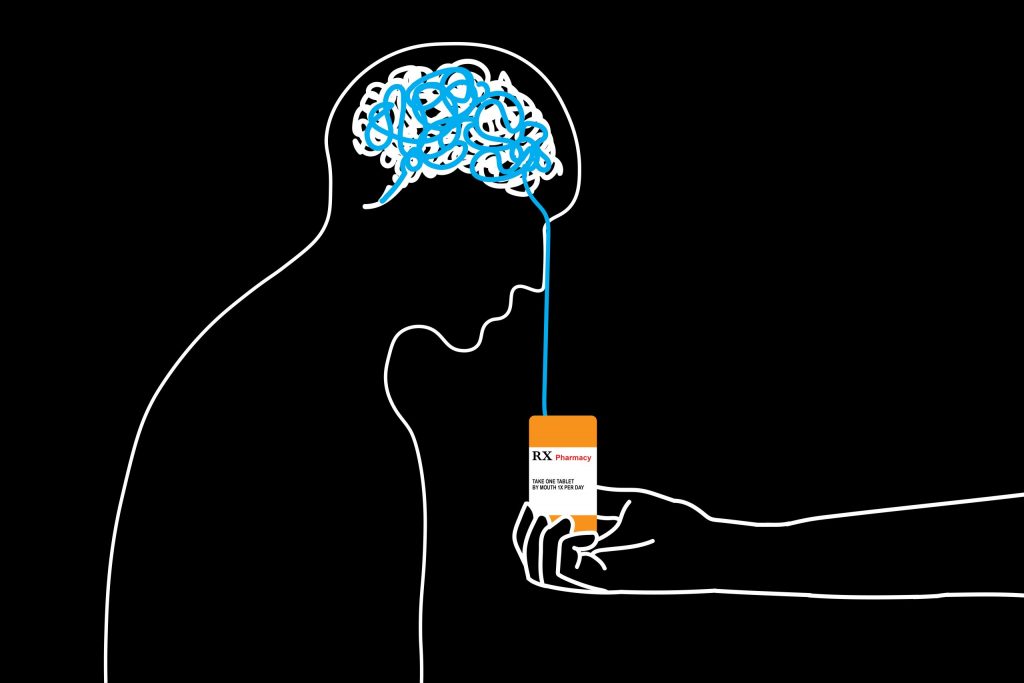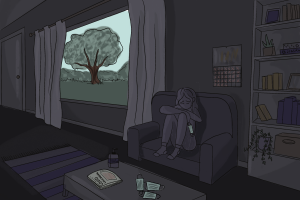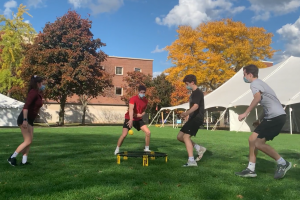Post-COVID stress causes students to seek counseling and medication
Post-COVID stress causes students to seek medication

As the spring semester comes to a close, the Syracuse University campus seems to have reached a state of normalcy. Despite this normalcy, the effects of the pandemic appear to still be lingering on the SU campus.
As students struggle with the trauma of the pandemic, the Barnes Center at the Arch counseling center faces a large influx of students who are having difficulty adjusting to school following the pandemic. According to a study by the Penn State Office of Student Affairs, when asking students to report which aspect of their lives was most negatively affected by COVID-19, 72% said that mental health was the most affected. The CDC found that 23.5% of U.S. adults are taking medication for their mental health, compared to 19.4% in 2020. In addition, various other factors like global issues, have begun to take a toll.
Following the return to school post-coronavirus, many students have had difficulty adjusting to the intensity of full-time classes, said Tania Marschall an off-campus psychiatrist who occasionally assists the Barnes Center with cases.
Marschall said that the primary cohort this problem seems to be centered around is freshmen and sophomores. She said that these classes are presenting symptoms of racing thoughts and worry.
“When I ask them when it started, they say it was their senior year of high school,” Marschall said. “They missed out on a lot of important activities, and integrating from a high school setting to a university setting is very difficult because the expectations are a lot higher.”
Marschall speculated that a major cause for this anxiety is that, during the pandemic, many professors had cut back on assignments and eased up on their expectations of students. Now that COIVD-19 plagued high school upperclassmen have moved into the collegiate setting, Marschall said that many of them don’t know how to handle this change in their school environment.
Marschall attributed multiple factors leading to underclassmen’s difficulty adjusting to the higher education studies, such as the workload and students being separated from their families for the first time. Marschall also stated that many students don’t have well-developed coping skills and have turned to less healthy avenues such as drugs and alcohol as a result of their distress.
“Some people with the pandemic wonder, ‘Is this going to happen again?’ and they just don’t have the right coping skill,” Marschall said.
Outside influences such as world events are another factor that weighs on student stress, said Stephanie Pilkay, an assistant professor at the Falk School of Social work.
Pilkay said that this generation of students feels much more tuned into what’s going on in the world. Gen Z has a greater connection to individuals across the world and can transcend differences such as faiths and identities, Pilkay said. She also stated that this empathy is what causes them to be more aware of when something is wrong in society.
“As a result of this, they seem to be carrying a larger awareness of and emotional burden of what’s not going right in the world,” Pilkay said. “There seems to be a greater sense of the moral consequences and the moral travesty of when we marginalize people because of things like personal identity.”
Marschall said a factor that hinders counselors in the Barnes Center from assisting students with this is that they are overwhelmed with cases. From what Marschall has seen there are not enough counselors to meet the number of cases that are being presented post-coronavirus. She said that this seems to be why they are seeking outside help from counselors like her.
Pilkay suggested that this is not something that is just concentrated just now but rather might be the result of a long-term societal shift. Pilkay said that this is a cohort that has come to see mental health as something that can be addressed and thus is not afraid of seeking help with it or discussing it on social media.
“When you’ve got a large community that normalizes this, it’s normal you have people that partake in the resources, so I don’t know that it’s a crisis because it’s a need that extends beyond what we provide at this moment,” Pilkay said.
Marschall also mentioned that the university could do to help alleviate this burden is to bring on more mental health providers who are directly affiliated with the university. She said that they need things such as more nurse practitioners and on-campus psychiatrists.
Marschall said that the school also needs to implement greater psychiatric education for students so that they might be able to better recognize when they have a problem.
“I don’t think that they’re equipped to the point that when there’s a crisis, and they have to get things like medication and they have to monitor them and do actual therapy on campus,” Marschall said. “Syracuse University could do a better job instead of just outsourcing.”








